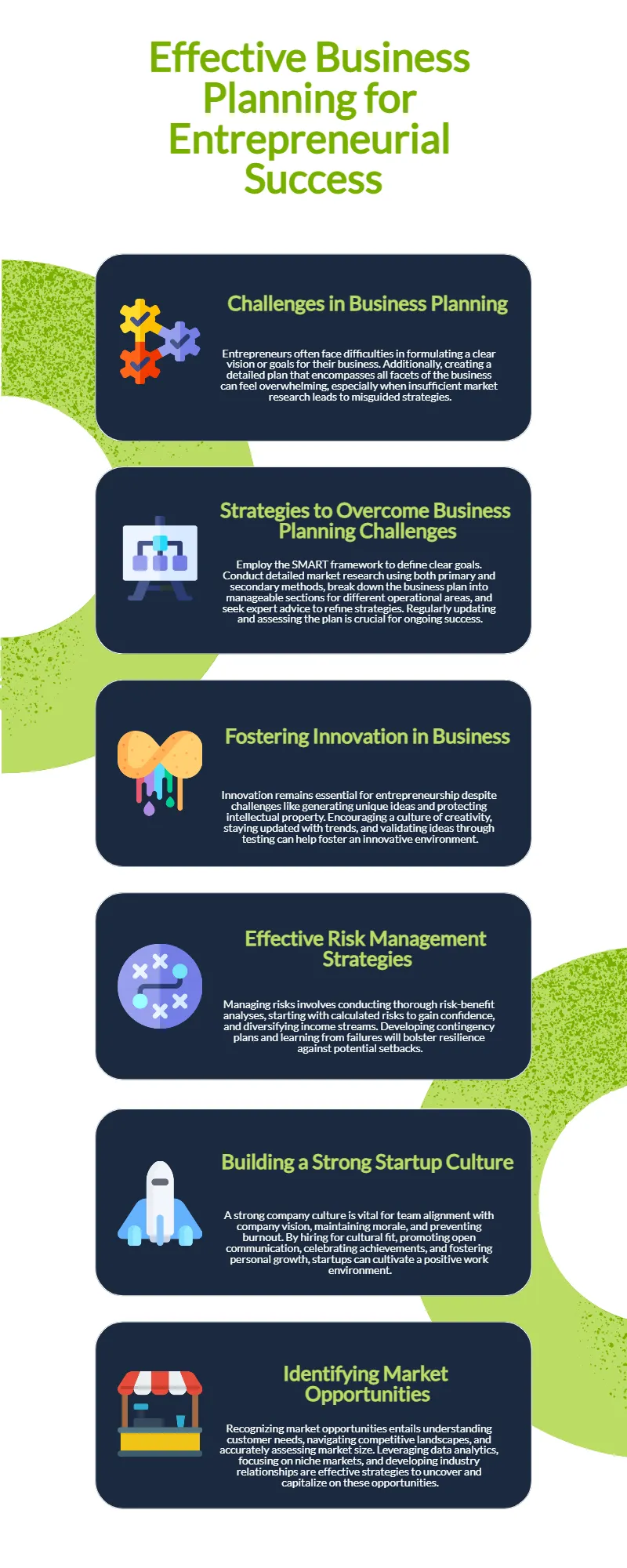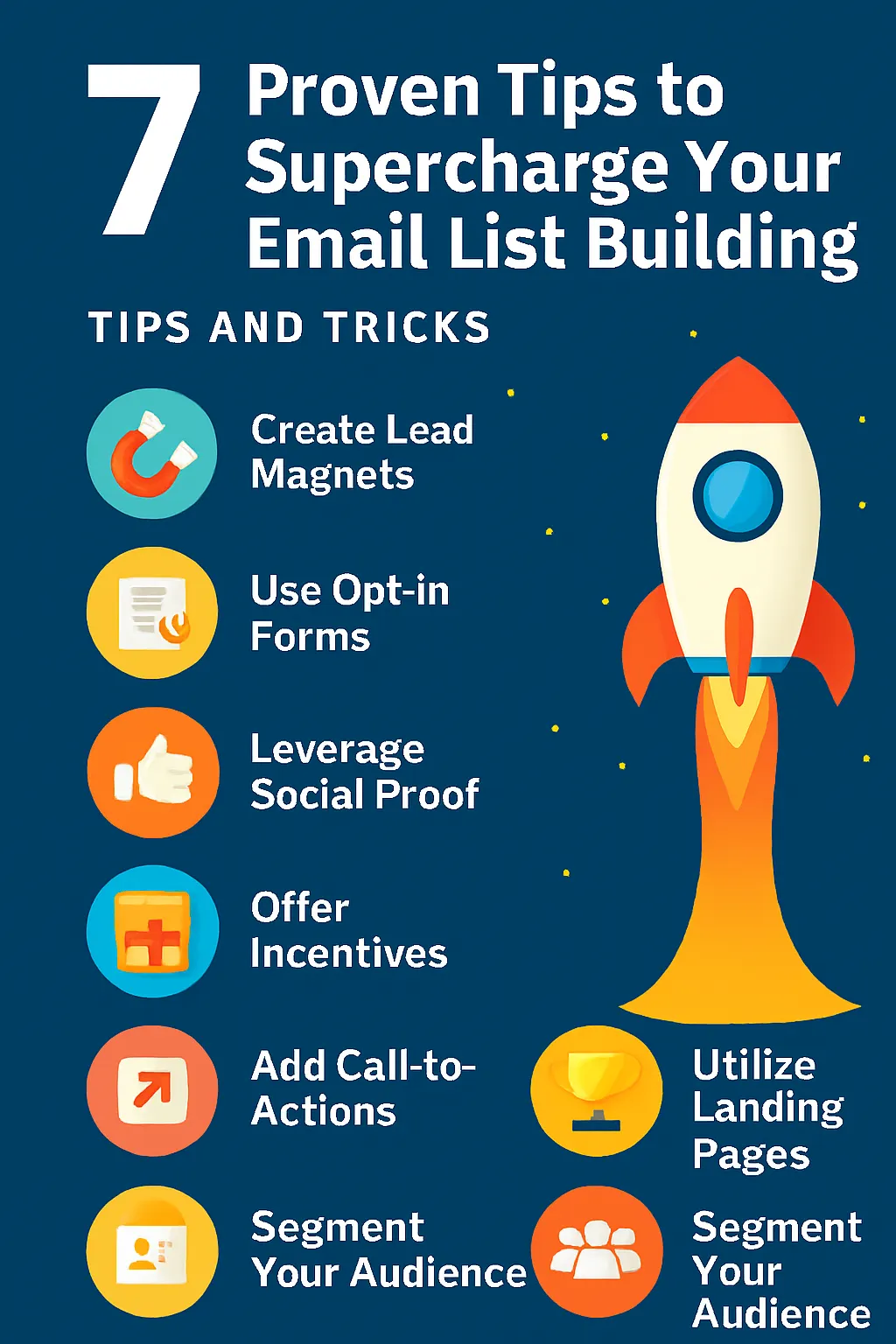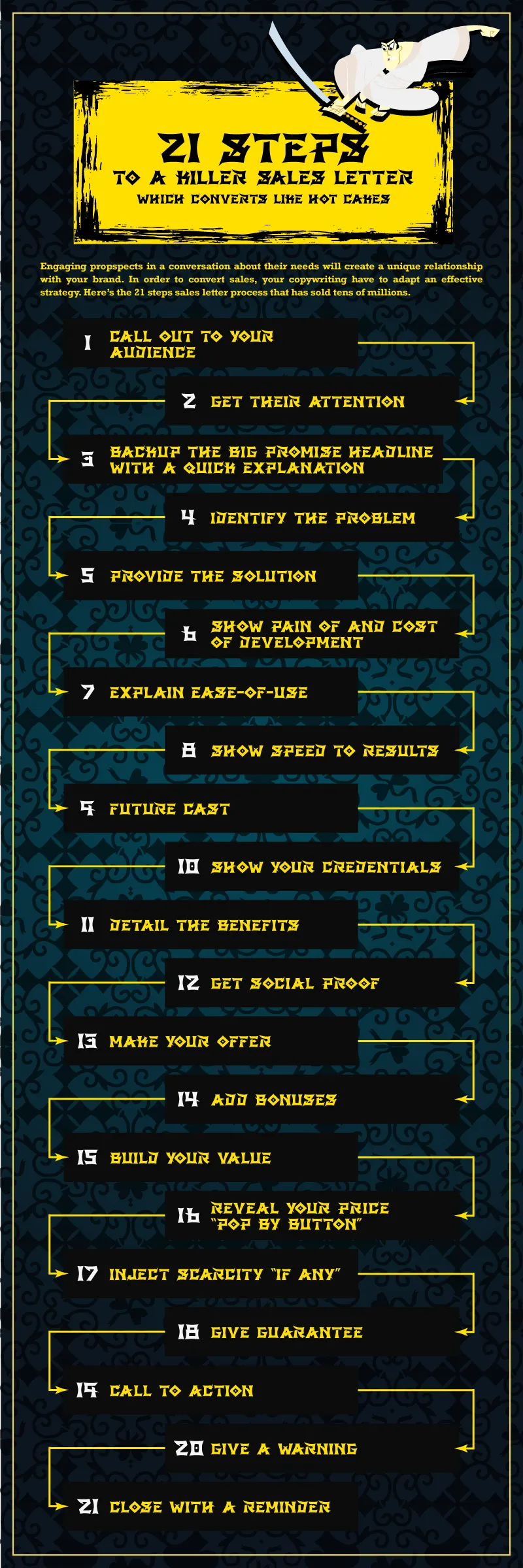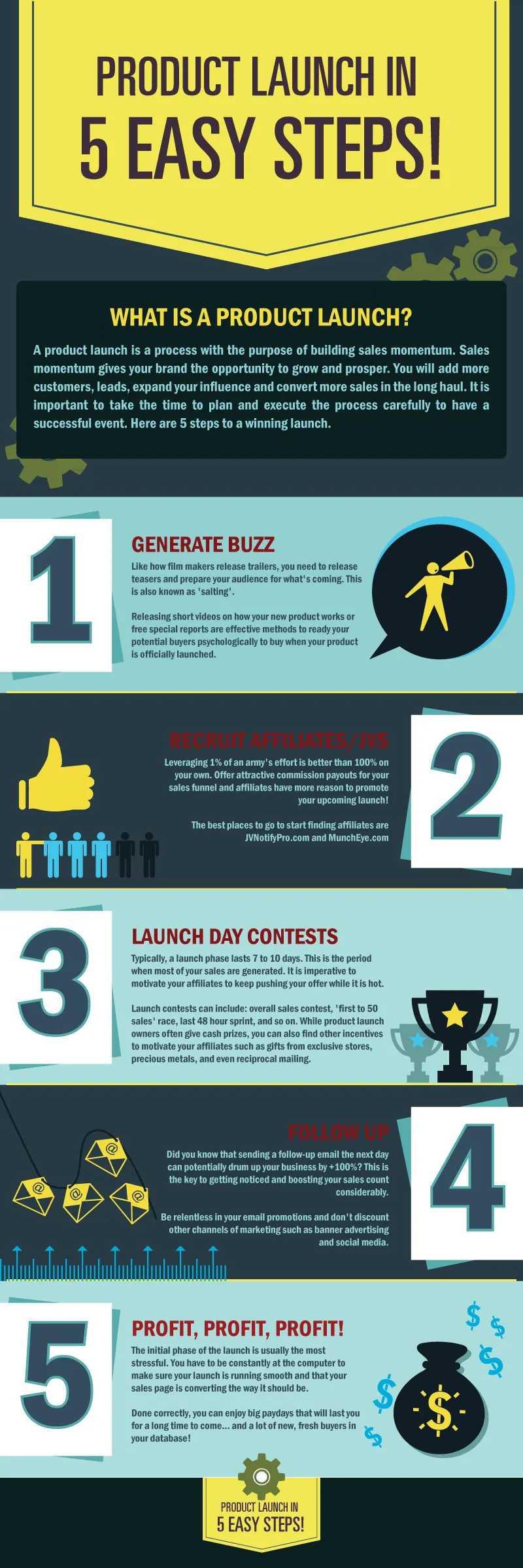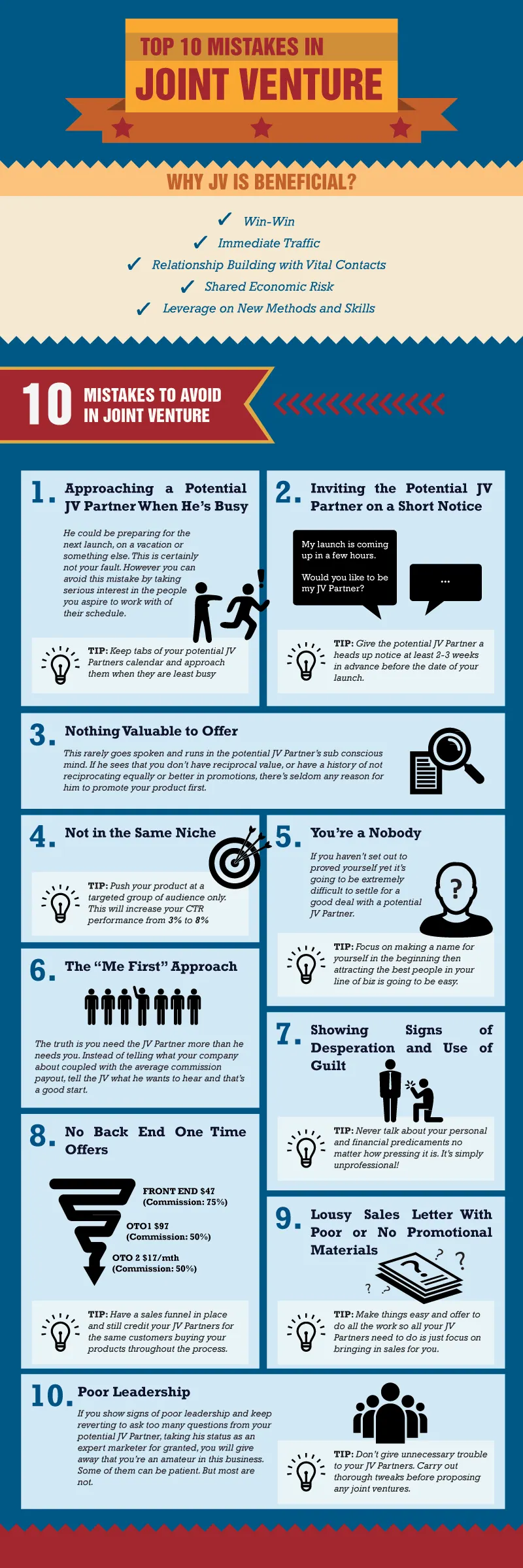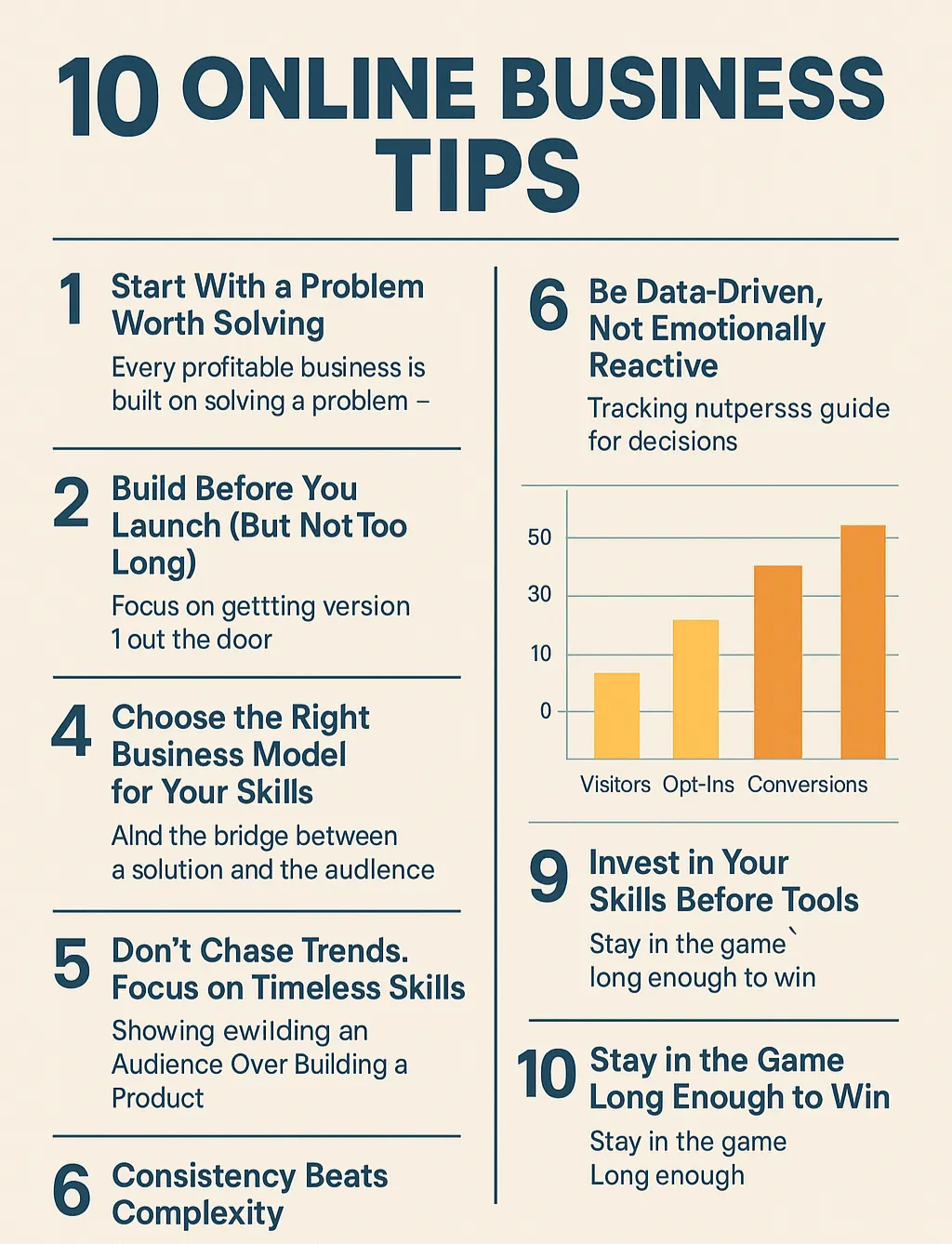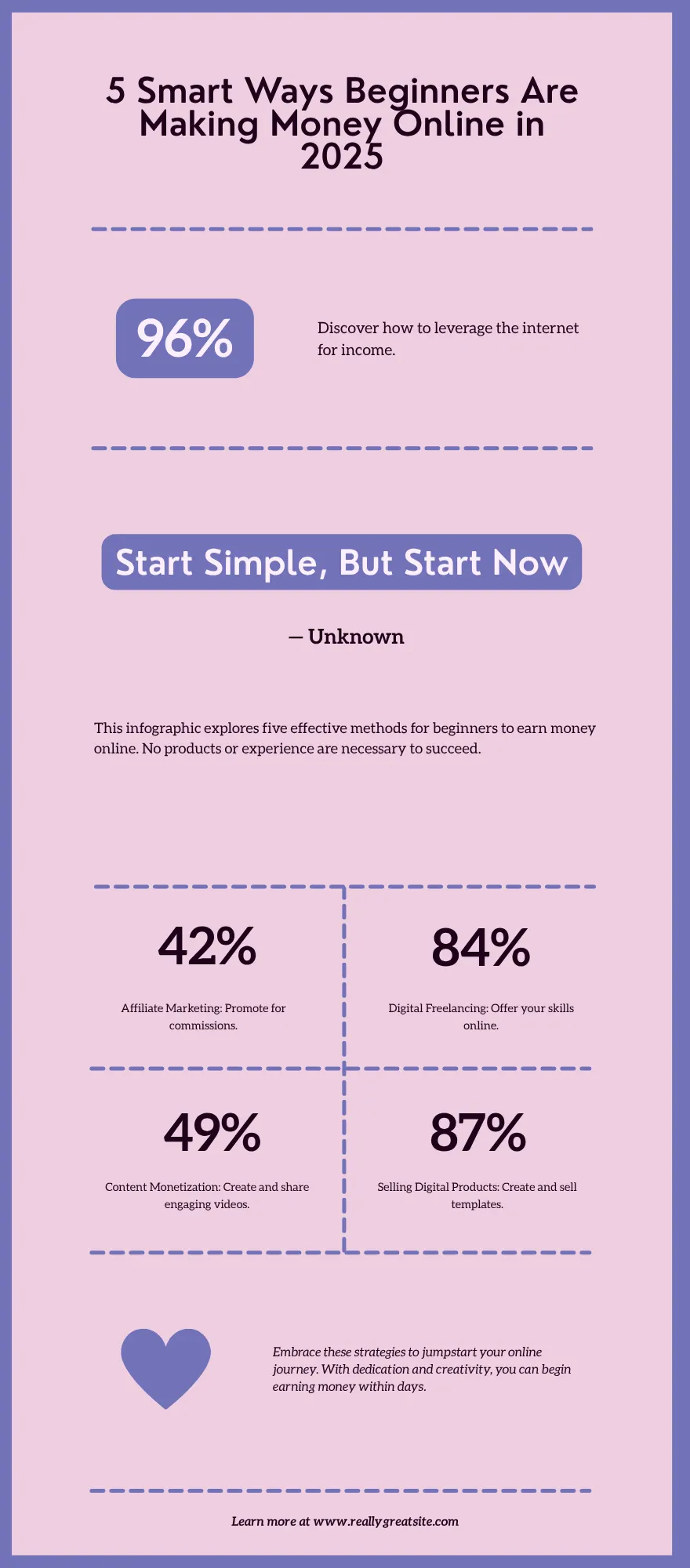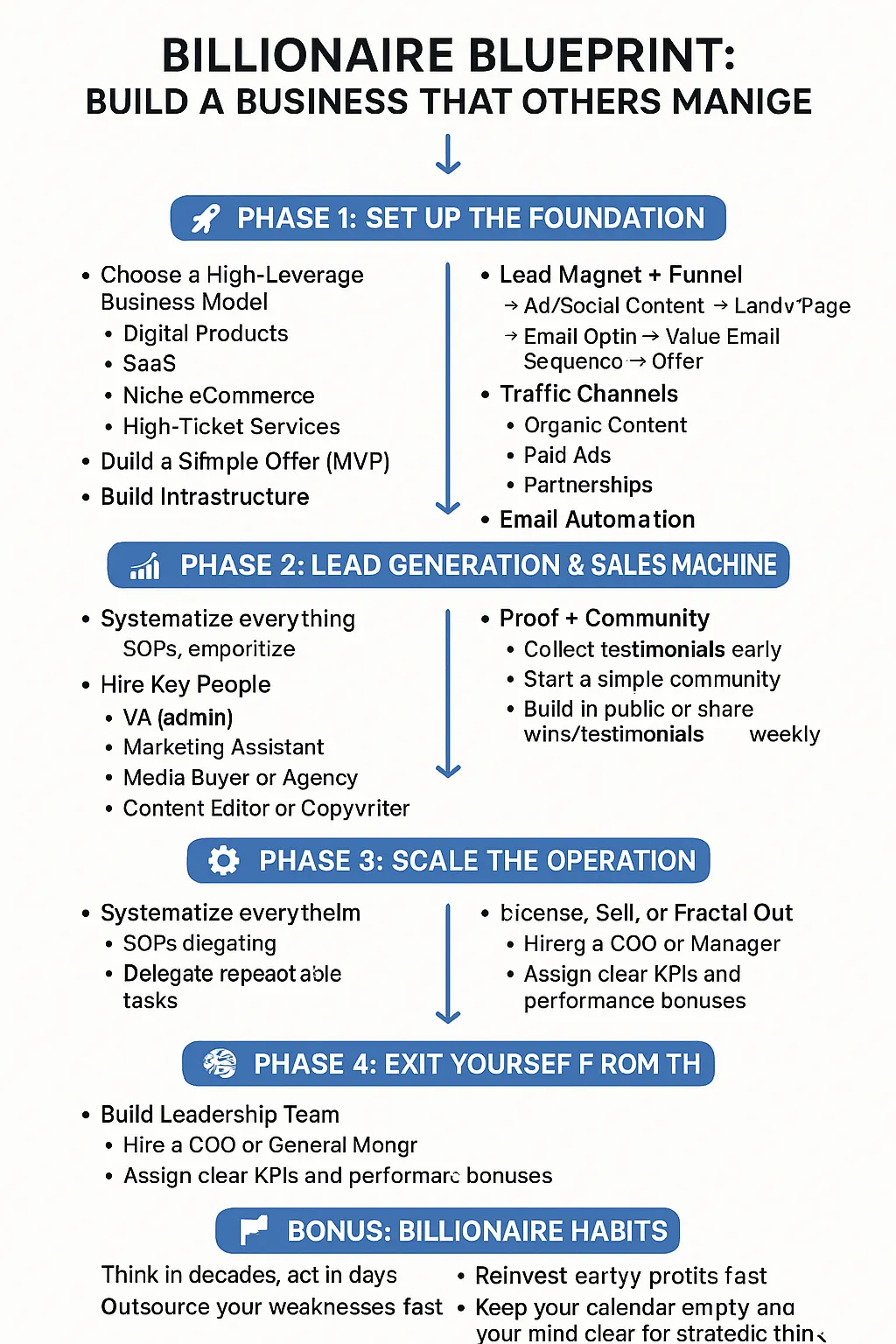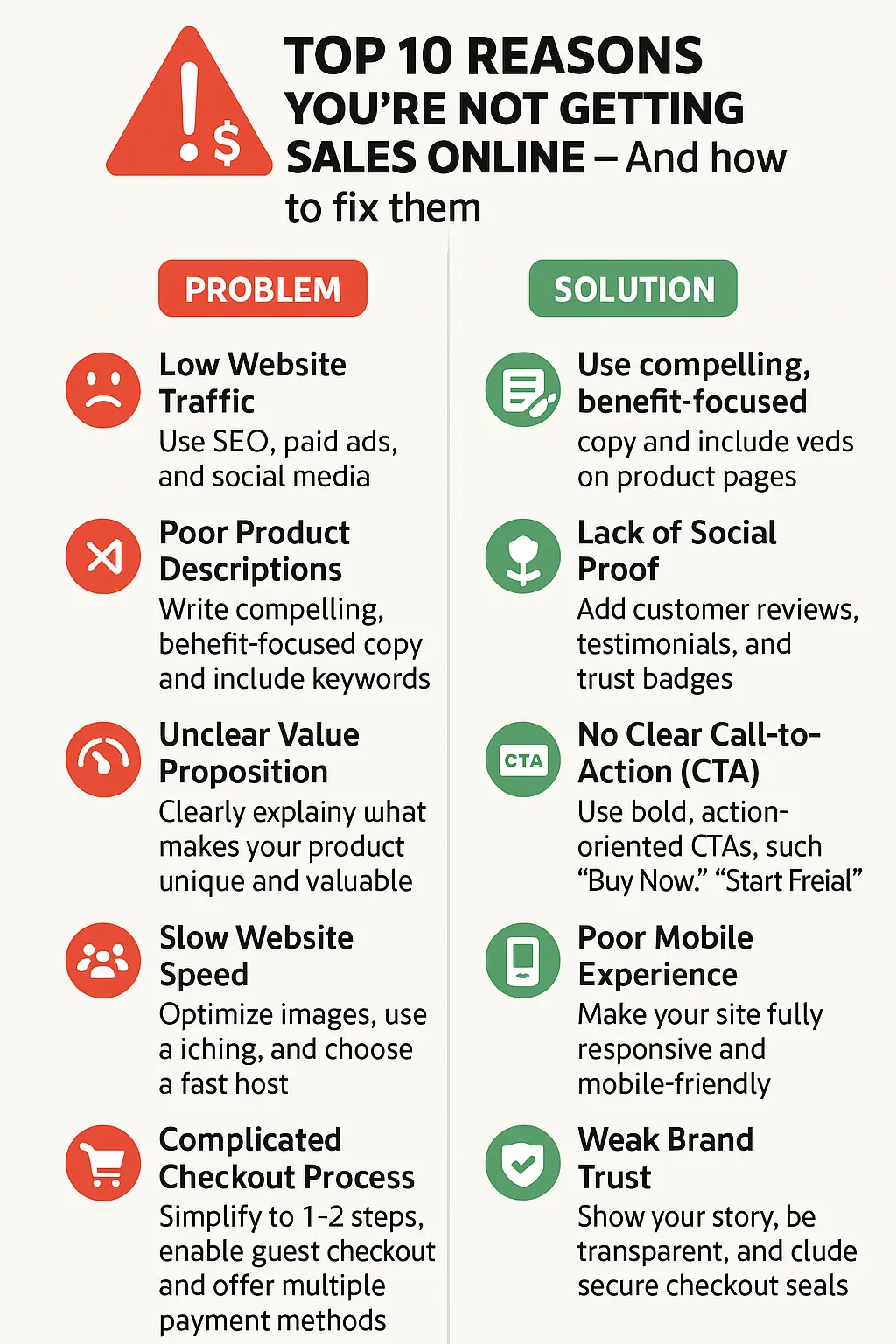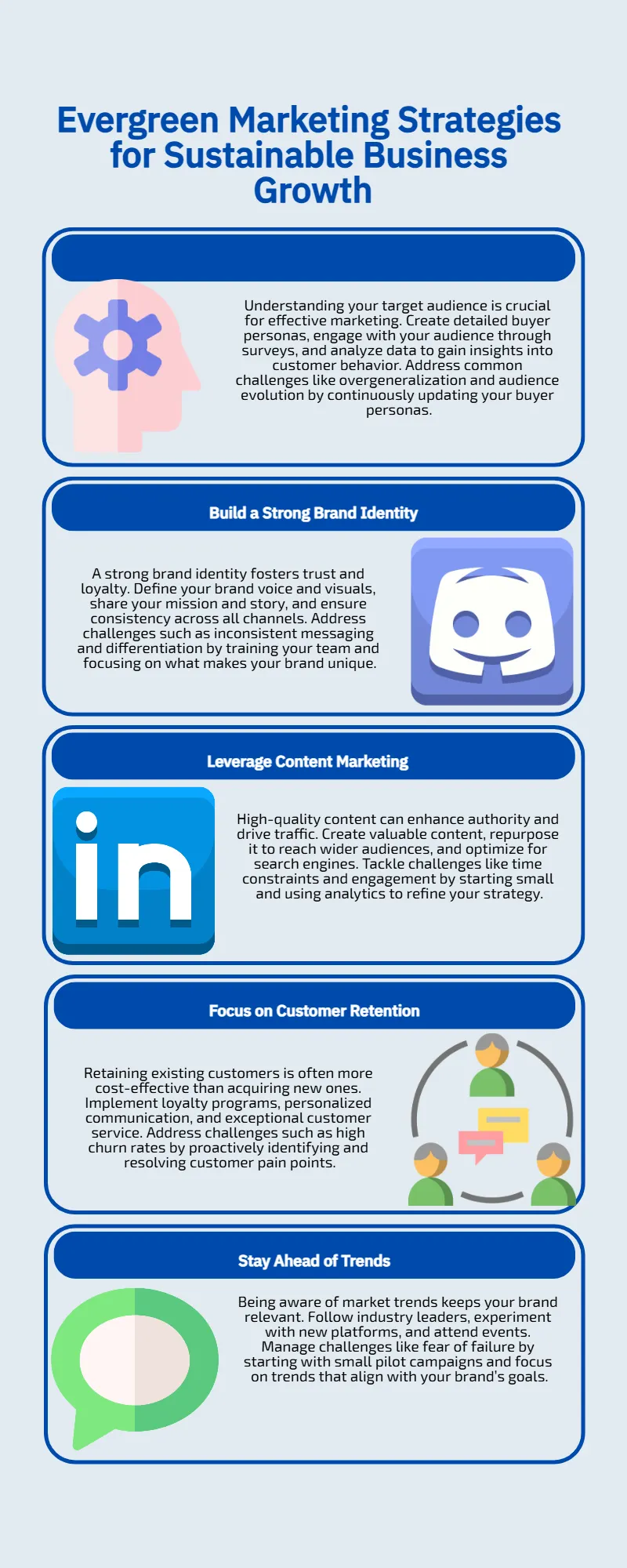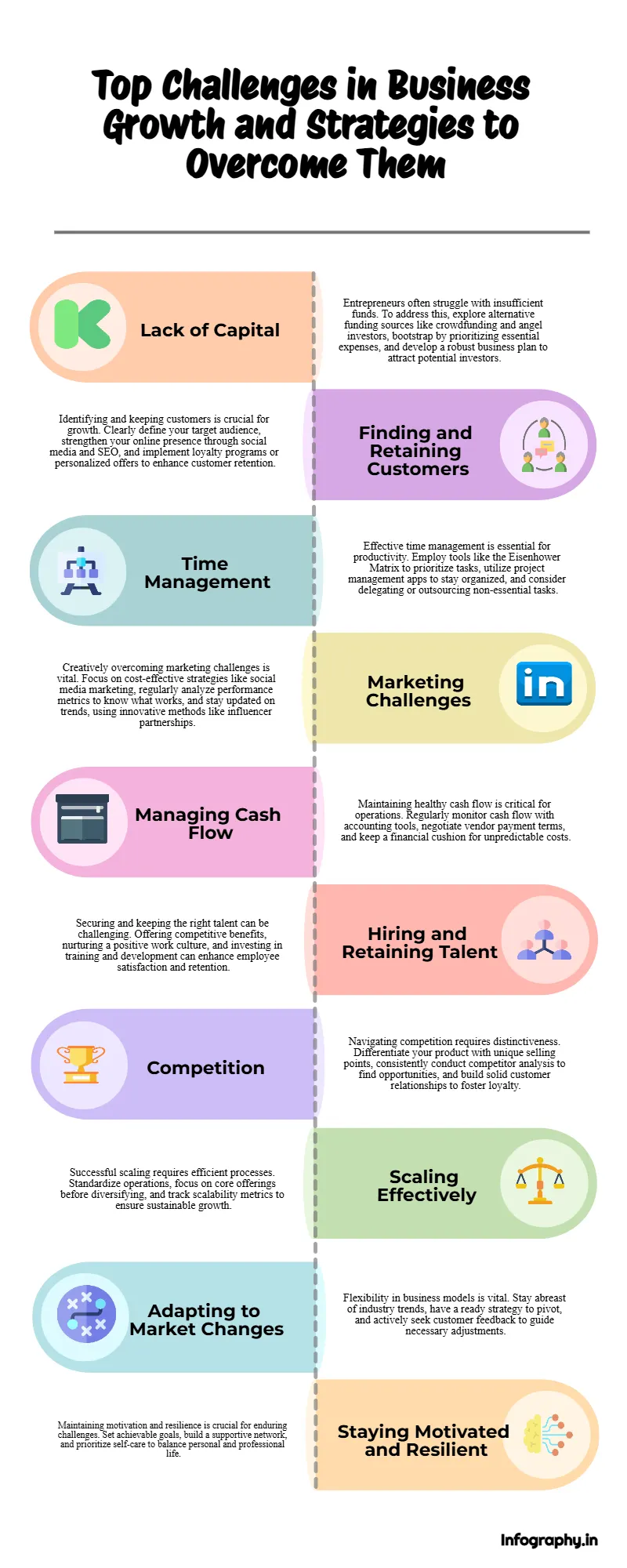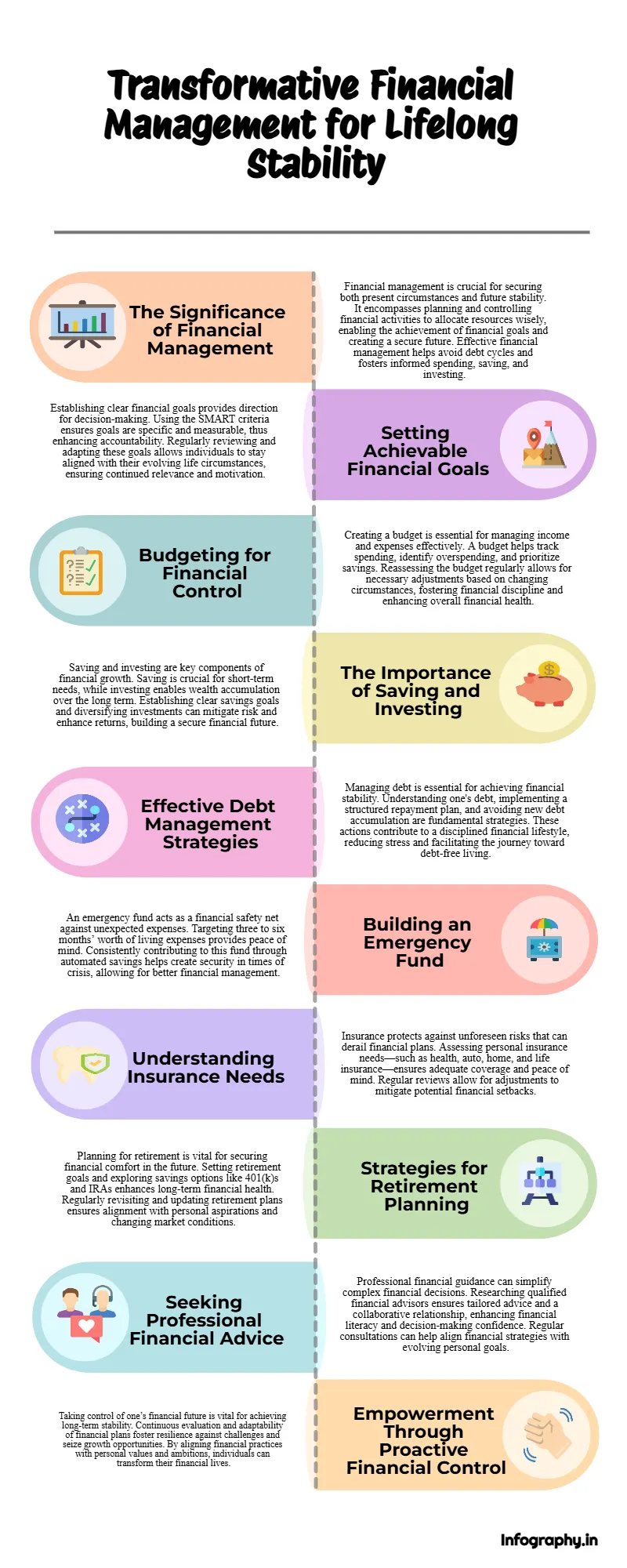Entrepreneurship Business Planning
Entrepreneurship Business Planning
Entrepreneurship Business Planning
Effective business planning is crucial for entrepreneurial success. It provides a roadmap for your venture and helps you anticipate challenges.
Challenges in Business Planning
Unclear vision or goals: Many entrepreneurs struggle to articulate a clear, compelling vision for their business.
Creating a detailed, realistic plan: Developing a comprehensive plan that covers all aspects of the business can be overwhelming.
Inadequate market research: Failing to thoroughly understand the market can lead to misguided strategies.
If you like to watch the free video on Proven Strategy to Earn $3,000+ Per Day Selling Digital Products in 2025, click here.
Strategies to Overcome Business Planning Challenges
Define clear goals and mission:
Use the SMART framework: Specific, Measurable, Achievable, Relevant, and Time-bound goals.
Develop a concise mission statement that encapsulates your business purpose.
Conduct thorough market research:
Utilize both primary (surveys, interviews) and secondary (industry reports, competitor analysis) research methods.
Analyze customer demographics, preferences, and pain points.
Break down the plan into manageable sections:
Create separate sections for operations, marketing, finance, and human resources.
Use project management tools to organize and track different aspects of your plan.
Seek expert advice:
Consult with mentors, industry experts, or business consultants.
Join entrepreneurship networks or incubators for guidance and support.
Regularly update and adjust the plan:
Set quarterly review periods to assess progress and make necessary adjustments.
Use key performance indicators (KPIs) to measure success and identify areas for improvement.
Innovation
Innovation is the lifeblood of entrepreneurship, but it comes with its own set of challenges.
Challenges in Innovation
Generating unique ideas: Coming up with truly innovative concepts can be difficult in a crowded market.
Resistance to change: Both team members and the market may resist new ideas or approaches.
Protecting intellectual property: Innovative ideas are at risk of being copied by competitors.
Strategies to Foster Innovation
Create a culture of creativity:
Implement regular brainstorming sessions and idea challenges.
Encourage cross-functional collaboration to spark new perspectives.
Stay updated on industry trends:
Attend industry conferences and workshops.
Subscribe to relevant publications and follow thought leaders in your field.
Protect your intellectual property:
File for patents, trademarks, or copyrights as appropriate.
Use non-disclosure agreements (NDAs) when discussing ideas with potential partners.
Collaborate strategically:
Form partnerships with complementary businesses or research institutions.
Consider open innovation models to tap into external expertise.
Validate ideas through testing:
Develop minimum viable products (MVPs) to test market reception.
Use A/B testing for new features or marketing strategies.
Risk Management
Entrepreneurship inherently involves risk, but effective management can mitigate potential downsides.
Challenges in Risk Management
Fear of failure: The possibility of financial loss or reputational damage can be paralyzing.
Accurate risk assessment: It's often difficult to quantify potential risks and their impacts.
Balancing risk and reward: Overconfidence can lead to unnecessary risks, while excessive caution can stifle growth.
If you like to watch the free video on Proven Strategy to Earn $3,000+ Per Day Selling Digital Products in 2025, click here.
Strategies for Effective Risk Management
Conduct thorough risk-benefit analysis:
Use tools like SWOT analysis (Strengths, Weaknesses, Opportunities, Threats) for each major decision.
Quantify potential losses and gains where possible.
Start with calculated risks:
Begin with smaller, manageable risks to build confidence.
Use the "fail fast, fail cheap" approach to test ideas without significant investment.
Diversify income streams:
Develop multiple products or services to reduce dependence on a single offering.
Explore different market segments or geographical areas.
Develop contingency plans:
Create "what-if" scenarios for potential setbacks.
Maintain an emergency fund to cover unexpected expenses.
Learn from failures:
Conduct post-mortems on unsuccessful ventures or decisions.
Share lessons learned with your team to improve future decision-making.
Building a Strong Startup Culture
A positive company culture is essential for attracting talent, maintaining motivation, and driving success.
Challenges in Startup Culture
Aligning team with company vision: Ensuring all team members understand and support the company's goals can be difficult.
Maintaining morale during tough times: Startups often face setbacks that can demoralize the team.
Balancing work and personal life: The intense nature of startups can lead to burnout.
Strategies for Building a Strong Startup Culture
Hire for cultural fit:
Define your company values clearly and incorporate them into the hiring process.
Use behavioral interviews to assess alignment with company culture.
Promote transparent communication:
Hold regular all-hands meetings to discuss company progress and challenges.
Implement an open-door policy for feedback and suggestions.
Celebrate milestones:
Recognize both individual and team achievements.
Create traditions around important company milestones.
Implement effective time management:
Use time-tracking tools to identify inefficiencies.
Encourage breaks and set realistic deadlines to prevent burnout.
Foster personal and professional growth:
Provide opportunities for skill development and learning.
Offer mentorship programs or career coaching.
Identifying Market Opportunities
Recognizing and capitalizing on market opportunities is crucial for entrepreneurial success.
Challenges in Identifying Opportunities
Understanding customer needs: Truly grasping what customers want can be complex.
Navigating competitive markets: Standing out in saturated markets is challenging.
Accurately assessing market size: Overestimating potential can lead to misallocation of resources.
If you like to watch the free video on Proven Strategy to Earn $3,000+ Per Day Selling Digital Products in 2025, click here.
Strategies for Identifying Market Opportunities
Leverage data analytics:
Use tools like Google Analytics or social media insights to understand customer behavior.
Conduct regular customer surveys and feedback sessions.
Focus on niche markets:
Identify underserved segments within larger markets.
Develop specialized products or services for these niches.
Test ideas with MVPs:
Create simple prototypes to gauge market interest.
Use landing pages or crowdfunding platforms to validate demand before full development.
Build industry relationships:
Attend networking events and join professional associations.
Collaborate with complementary businesses for market insights.
Monitor competitors and trends:
Use competitive intelligence tools to track competitor activities.
Stay informed about emerging technologies and consumer trends that could disrupt your industry.
By addressing these challenges head-on and implementing these strategies, entrepreneurs can significantly improve their chances of success. Remember, entrepreneurship is a journey of continuous learning and adaptation. Stay curious, remain flexible, and always be ready to pivot when necessary.
If you like to watch the free video on Proven Strategy to Earn $3,000+ Per Day Selling Digital Products in 2025, click here.

